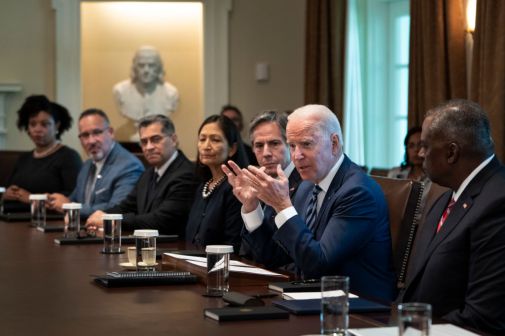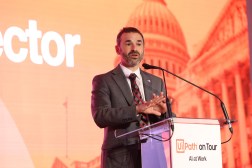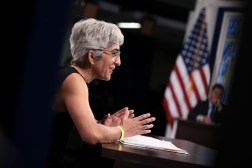Cobert: Data drives OPM policies

The Office of Personnel Management is exploring new ways to let data drive its human resources and operations policies, acting Director Beth Cobert said.
OPM kicked off its two-day 2016 Research Summit Tuesday with American University’s School of Public Affairs in Washington, D.C., collaborating with researchers from 19 different universities and policymakers from more than 20 different agencies to “shape the human capital research agenda for the future,” Cobert said in her opening remarks.
“In the federal government we want our decisions about human capital policy to be grounded in research,” Cobert said, citing the influence of the annual Federal Employee Viewpoint Survey on senior executives’ workforce management and the White House National Science and Technology Council’s Social and Behavioral Sciences Team’s use of research to inform OPM on “how people make decisions to improve the lives of Americans and make government more efficient.”
“[M]embers of the team are helping OPM improve how information about Federal Employee Health Benefit plan choices is presented to employees during the annual open season,” Cobert said. “Research tells us that the choices employees make about health plans are affected not only by the quality of the information but how user-friendly the presentation is.”
Cobert said that connection between research data and policy is one of OPM’s nine strategic agencywide goals — “to foster a culture where evidence-based policy setting is the norm,” she said, and collaborate with other private, public and academic organizations in doing so.
“The ultimate goal of all of these collaborations and of this first inaugural research summit is to help us establish a research agenda for federal human resources management that will build the foundation for how we shape human capital policy for years to come,” she said.
This research is becoming increasingly important as the federal government strives to adapt in how it manages millions of employees during a time when traditional work roles and workplaces are evolving to be more digital.
“Research can help us understand how to provide the flexibility of telework while not losing the human connection to the workplace,” Cobert said. “I certainly appreciate and think about our ability to use telework when I’m on the phone at 3 a.m. during a snowstorm deciding how to balance the need to keep the government running with the need to keep people safe.”
Cobert added: “By making sure that our human resources policies are informed by the most rigorous and up-to-date research, OPM can design more effective human resources policies and help the federal government move to the forefront as an employer of choice. The government’s ability to attract, develop and retain the talent we need is especially critical in the current world of dwindling resources.”
Summit participants joined collaborative groups to survey gaps in research around federal HR and operations policy, and will report back on their findings at the event’s conclusion.
Contact the reporter on this story via email at Billy.Mitchell@FedScoop.com or follow him on Twitter @BillyMitchell89. Subscribe to the Daily Scoop to get all the federal IT news you need in your inbox every morning at fdscp.com/sign-me-on.






